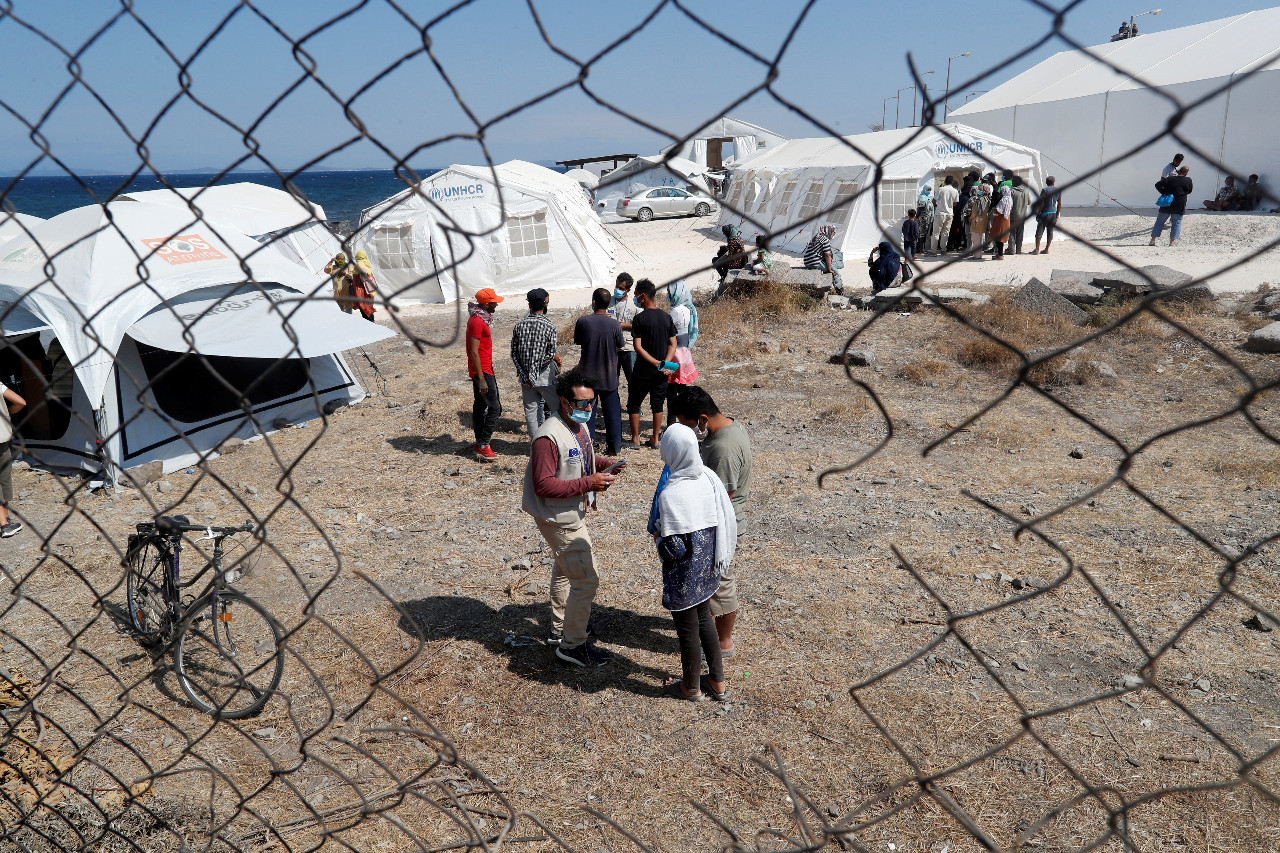Popular Reads
Top Results
Can't find what you're looking for?
View all search resultsPopular Reads
Top Results
Can't find what you're looking for?
View all search resultsNo more Morias? EU to unveil long-delayed asylum plan
On Wednesday, two weeks after the destruction of the Moria camp on the Greek Island of Lesbos, Brussels will launch its latest proposal for EU asylum policy.
Change text size
Gift Premium Articles
to Anyone
T
he failure of the European Union's migration policy could not have been laid out more starkly - an already miserable camp burned and thousands of refugees homeless.
On Wednesday, two weeks after the destruction of the Moria camp on the Greek Island of Lesbos, Brussels will launch its latest proposal for EU asylum policy.
Home Affairs Commissioner Ylva Johansson wants the 27 member states to share the burden of handling asylum claims from the migrants arrived on the bloc's shores.
And this time, the proposed system won't be voluntary - a tough concession for many member capitals to swallow.
"It's obvious to everybody that ad hoc solidarity or voluntary solidarity is not enough. That has been proven for many years now," she said.
"It has to be mandatory, all member states have to help when there is a situation when a member state is under pressure and a lot of people that need protection."
Alongside a way to distribute would-be refugees away from the coasts of Italy and Greece there will be tougher rules on sending home those whose claims are refused.
But, five years after the 2015 migration crisis and with annual "irregular arrivals" down to 140,000 a year, EU members are still deeply divided on the issue.
An emergency EU plan during that crisis to redistribute arrivals, pushed by Germany, was opposed and then ignored by Hungary and Poland, which took in zero asylum-seekers.
European Commission chief Ursula von der Leyen said last week the proposal would replace the "Dublin Regulation" with "a new European migration governance system".
"It will have common structures on asylum and return and it will have a new strong solidarity mechanism," she said, surprising some sceptical capitals.
The Dublin Regulation - which governs which member state handles a new arrival's asylum claim - was established in 1990 and was reformed most recently in 2013.
It states migrant asylum claims should be handled in the EU country where the applicant first enters the system, to prevent undocumented migrants flowing around the bloc.
Johansson did not give AFP full details of the alternative scheme the Commission will unveil on Wednesday, but stressed that the key would be solidarity.
This does not necessarily mean, however, that recalcitrant anti-immigration regimes like that in Hungary would be obliged to resettle refugees.
"It's not only relocation, it could also be other situations like, for example, helping with returns," she said.
This would imply that countries that believe they can cope with welcoming more migrants would take some of the strain off the Greeks and Italians.
Europe's plan has been a long time coming and will be hard to sell to EU leaders, who meet for a summit in Brussels on Thursday focused on foreign affairs.
But the fire in Moria, which underlined the dismal state of the system for housing refugees stuck on the Greek islands, has focused minds somewhat.
Offers to rehouse the now homeless Moria refugees have come piecemeal, with some states like Austria refusing point blank to take any.
Brussels is working with Athens on a pilot project to jointly build and run a new facility, but Johansson was clear there must be "no more Morias".










